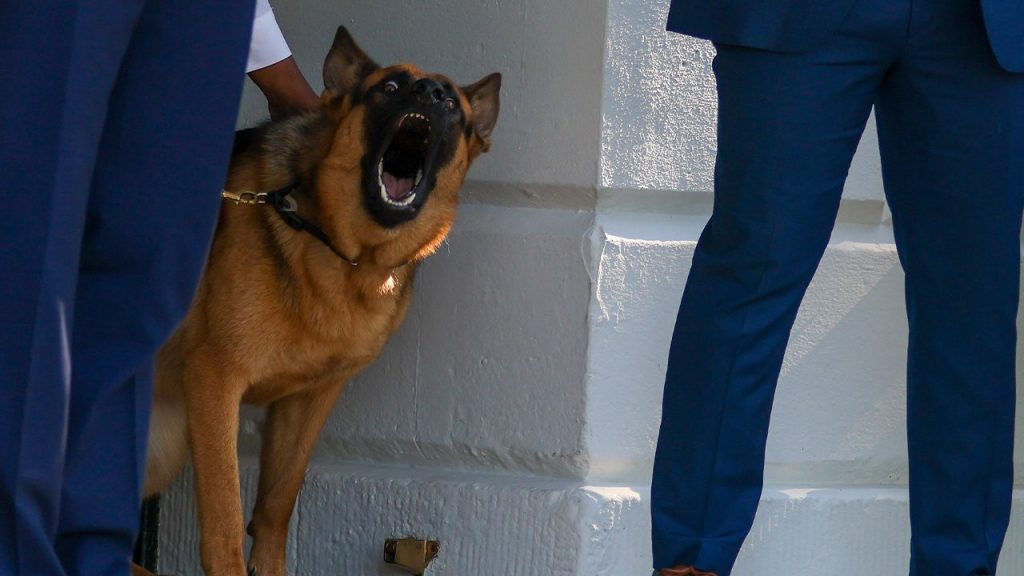President Biden’s German Shepherd dog, Commander, reportedly attacked U.S. Secret Service personnel at least 24 times, according to newly released records obtained by Judicial Watch. The attacks occurred while Biden was walking the dog, with the president witnessing the incidents firsthand. Some staff members suggested purchasing a muzzle for Commander to prevent further incidents. One Secret Service member described an encounter where Commander bit his arm twice, leaving holes in his suit coat but not breaking the skin. Other emails from staff mentioned incidents where officers were bitten and may have required medical attention.
The incidents involving Commander’s aggressive behavior took place at various locations, including the White House, Wilmington, Delaware, Camp David, and Biden’s beach house in Rehoboth Beach, Delaware. The German Shepherd’s arrival at the White House followed the departure of the Bidens’ previous dog, Major, who was also known to behave aggressively, including biting Secret Service and White House staff. Eventually, Commander left the White House to live with other family members after the series of attacks. This situation raised concerns about the safety of the Secret Service personnel and the need for precautions to prevent further incidents.
One email shared by the U.S. Secret Service Safety, Health & Environment Division expressed urgency in finding a way to muzzle Commander after reports of a dog bite at the White House. Another email from Anthony Guglielmi, the Chief of Communications for the United States Secret Service, described an incident where a Secret Service officer was bitten by a First Family pet and required medical treatment. Media outlets also reached out to confirm reports of a female USSS officer being bitten by Commander on a separate occasion, further highlighting the ongoing issue of the German Shepherd’s aggressive behavior.
The records revealed multiple encounters where USSS personnel were bitten or attacked by Commander, prompting concerns about the safety of those working to protect the president. In one incident, a Secret Service agent described being bitten twice by the dog, with holes left in his suit coat but no skin broken. The incidents involving Commander’s aggressive behavior raised questions about the necessity of additional measures to prevent future attacks, such as muzzling the German Shepherd. The First Family’s decision to rehome Commander after the series of attacks underscored the seriousness of the situation.
The emails and correspondence detailing the attacks by Commander on Secret Service personnel shed light on the challenges faced by those responsible for the safety and security of the president and his family. The incidents with the German Shepherd not only raised concerns about the physical safety of the USSS personnel but also highlighted the importance of taking measures to prevent future attacks. The decision to rehome Commander following the series of incidents emphasized the need to prioritize the well-being of those working to protect the president and ensure a safe environment for all individuals involved.













